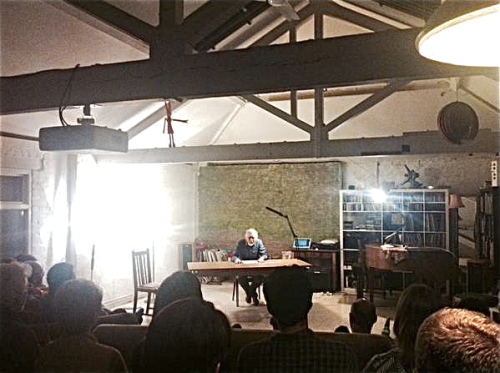one or two news items
The new novel is finished subject to tinkering (also to waking up at three in the morning, looking at part of it & thinking: what on earth did you think you were trying to do there?). I can’t say what kind of novel it is because I don’t feel I know yet. Maybe I’ll never know, but I can say that it’s set now, it’s odd, and it’s not a space opera, so that gives you some idea of what it isn’t. After that, things take on, as they should do, a slight, puzzling shimmeriness.
No title as yet. Publication details as and when I have them. And maybe the odd little excerpt to tease & confuse.
I started a version of this novel in 2008, looking to pick up where I had left off in the mid-to-late 90s with Signs of Life and Travel Arrangements. I wanted to take advantage of the things I’d learnt from the kind of short stories I began writing around then. That process was interrupted and modified by Empty Space; then the post-2012 version itself was interrupted by a house move and a heart attack, with an accompanying sense that I’d better get fit, go climbing again and generally take charge of myself from then on if I wanted to keep pushing and not give in and become old; and also by the recognition that this novel didn’t represent a direction I was going to be encouraged to take (& that therefore it was exactly the right thing to do). So I’m glad to have got to this point and be able to move along one way or the other.
In the last five or six years I’ve received such support, from so many new, exciting and unexpected directions, that I’ve had more sense of the fun of being a writer–not to mention the worth of it–than at any time since the early 1970s.
Next year I’ll transfer my attention to the other new novel I’ve been working on the sly: but also enjoy the luxury of finishing two short stories that have been slowly ungluing themselves from the edges of what I laughingly call my “mind”; and two really exciting collaborative projects nothing to do with on-the-page fiction. I also hope to do more readings, because I enjoy that kind of ephemerality of presentation, that way of entertaining people. Readings are a good way of finding out who you are and what you write, and extending that; and they offer audiences a new way in, too. I’ll be back to reviewing in the new year, for the Guardian & the TLS, and I’m hoping to collect a “personal anthology” of favourite short stories for Jonathan Gibbs’s excellent series here.
Sadly, The Course of the Heart, Signs of Life and Things That Never Happen remain out of print. Perhaps something can be done about that in 2019; I intend to be rather more energetic, and rather more vocal about the problem in certain quarters. Whether anything can be done or not, there’ll be a “selected” short stories to include material from The Machine in Shaft Ten onwards, introduced, I hope, by someone young, lively and cleverer than me, and aimed at an audience I didn’t until recently know that I had.
My slogan for 2019 will be: We go through the doors that open.

